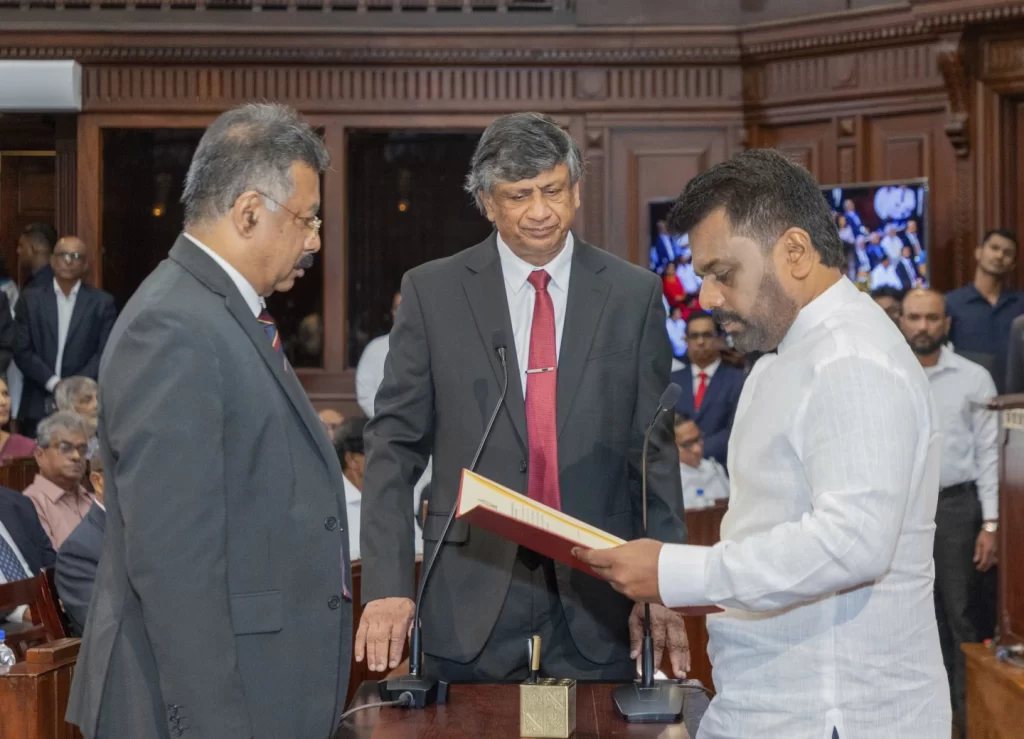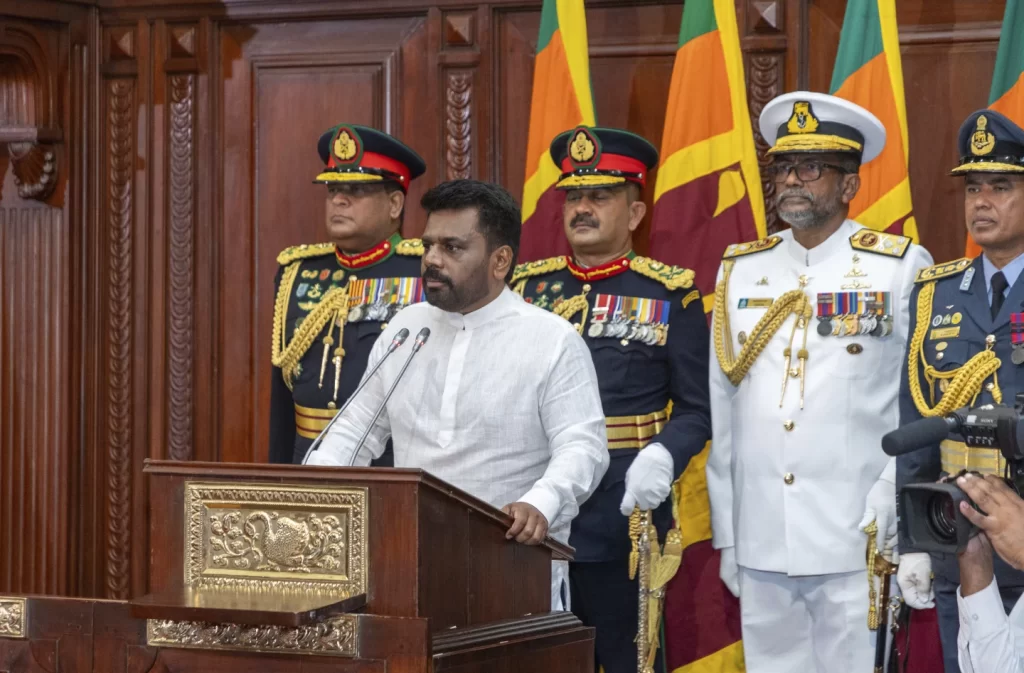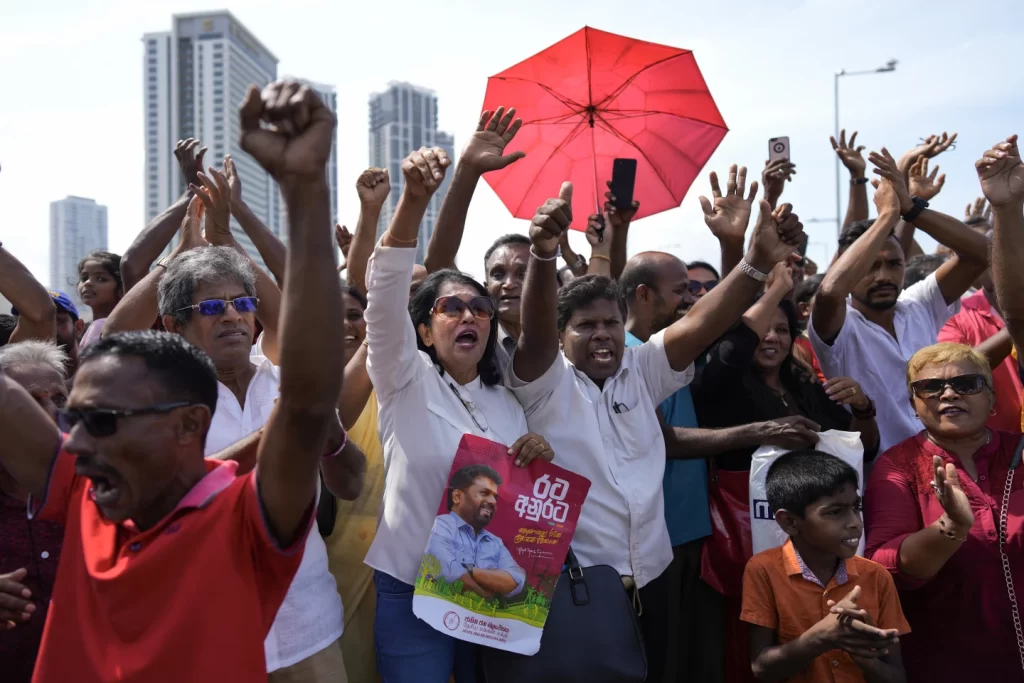Anura Kumara Dissanayake, a 55-year-old Marxist politician, was sworn in as Sri Lanka’s president on Monday following an election that saw voters reject established political figures associated with the country’s recent economic crisis.

Dissanayake, who ran as the head of the Marxist-leaning National People’s Power (NPP) coalition, defeated incumbent President Ranil Wickremesinghe, opposition leader Sajith Premadasa, and 35 other candidates in Saturday’s election.
The new president takes office as Sri Lanka struggles to recover from a severe economic crisis that led to shortages of essential goods and triggered massive protests in 2022, forcing then-President Gotabaya Rajapaksa to resign.
In his inaugural speech, Dissanayake acknowledged the challenges ahead: “We have deeply understood that we are going to get a challenging country. We don’t believe that a government, a single party or an individual would be able to resolve this deep crisis.”

Dissanayake becomes the ninth person to hold Sri Lanka’s powerful executive presidency, created in 1978. His coalition is led by the Janatha Vimukthi Peramuna (JVP), or People’s Liberation Front, a Marxist party with a history of armed insurrections in the 1970s and 1980s before entering democratic politics in 1994.
Prime Minister Dinesh Gunawardena resigned just before the swearing-in ceremony, allowing Dissanayake to appoint a new prime minister and cabinet.
International reactions to Dissanayake’s victory have been swift, with Chinese President Xi Jinping extending congratulations and expressing hope for continued friendship between the two nations. The United States and India had previously congratulated the new president.

Dissanayake, first elected to Parliament in 2000, faces the immediate challenge of addressing his campaign promise to ease austerity measures imposed under an International Monetary Fund (IMF) relief agreement. His predecessor, Wickremesinghe, has warned that altering the basics of this agreement could delay the release of nearly $3 billion in aid.
The economic crisis that led to Dissanayake’s election resulted from excessive borrowing, the impact of the COVID-19 pandemic, and the previous government’s currency policies.
As Dissanayake begins his term, all eyes are on how he will navigate Sri Lanka’s complex economic and political landscape while adhering to his Marxist principles and campaign promises.
AP



